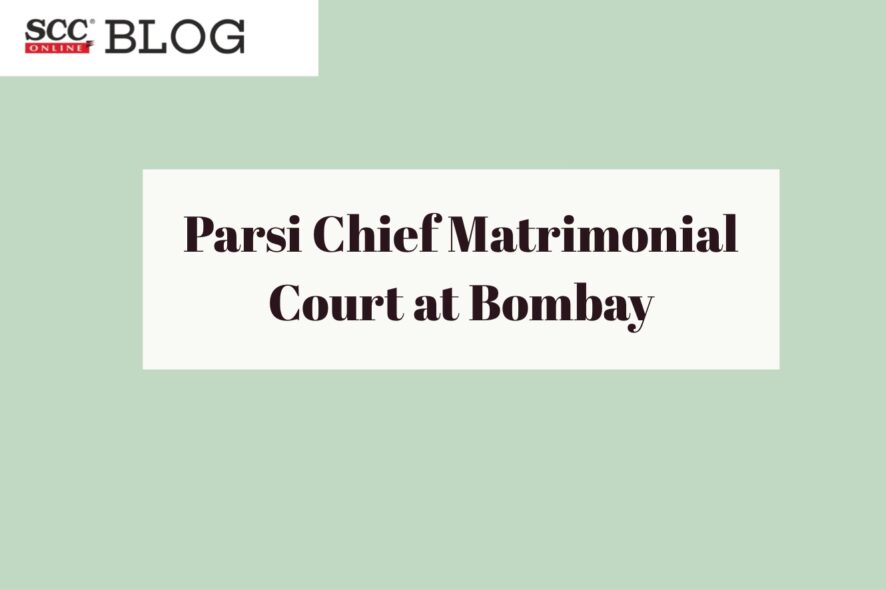Parsi Chief Matrimonial Court, Bombay: G.S. Kulkarni, J., expressed that, there is no provision under legislations, that if a marriage between the same couple is annulled under a competent law as enacted by the Parliament, it can as well be of a legal effect in the corresponding enactment.
The present suit for divorce by mutual consent was filed under Section 32B of the Parsi Marriage and Divorce Act, 1936, wherein the parties sought that their marriage be dissolved, and decree of divorce be pronounced under the said provisions.
Factual Matrix
The husband was a divorcee who got married to plaintiff 2, then a spinster. Initially, their marriage was registered under the Special Marriage Act, 1954 and later it was registered by the Registrar of Parsi Marriages, High Court, Bombay.
Parties stated that there were certain temperamental issues amongst them and Since 18th March 2018 they have not cohabited along with this, they added that there was an irretrievable breakdown of their marriage and there would be no purpose in continuing the marriage.
Further, the parties added that, as per the Parsi matrimonial law, the plaintiffs being married as per the “aashirwaad” ceremony, it was imperative that the marriage be dissolved under the 1936 Act.
Family Court had granted a decree of divorce by mutual consent in the proceedings under Section 28 of the Special Marriage Act, 1954, hence the plaintiff’s marriage registered under the Special Marriage Act stood dissolved.
Now the plaintiffs have sought for annulment of their marriage as registered under the 1936 Act.
Analysis and Decision
High Court opined that the marriage of the parties registered under the 1936 Act deserved to be annulled by consent, by granting a divorce decree by mutual consent under Section 32B of the 1936 Act.
Bench while addressing this case, significantly noted that, as a decree of divorce by mutual consent had already been granted by a competent Court under the Special Marriage Act was there a need for a second decree of divorce to be obtained?
To answer the above, High Court expressed that the scheme of the legislations in question is such that the parties are under an obligation to adopt such course of action to have dual proceedings.
Elaborating further, Bench added that from a perusal of Section 42 of the Special Marriage Act, it clearly appeared that although there was a marriage of the plaintiffs solemnized under the Special Marriage Act there was a decree of divorce by mutual consent as obtained by them, however considering the said Section, such a decree would not have any effect of validity of marriage which was solemnized under the 1936 Act.
As per Section 52(2) of the 1936 Act, it is clear that a Parsi who had contracted marriage under the 1865 Act or under 1936 Act, so long as a Parsi is not lawfully divorced from such wife or husband or such marriage was not lawfully declared null and void or dissolved under the decree of a competent Court, under either the 1865 Act or under the 1936 Act, they shall remain bound by the provisions of the Act.
Hence, the parties rightly approached this Court for nullifying their marriage. [Rohinton Minoo Surty v. Kashmira Rohinton Surty, 2022 SCC OnLine Bom 350, decided on 18-2-2022]
Advocates before the Court:
Ms. Armaity Khushrushahi with Ms. Nerissa Almeida for Plaintiff 1. Ms. Lipsa Unadkat and Ms. Sanaya Dadachanji i/b. M/s. Manilal Kher Ambalal & Co. for Plaintiff 2








The second marriage is a superfluous one and as such has no validity. Only non married persons can contract 2nd marriage. See the conditions required in the Parsi Act. It doesn’t allow a 2nd marriage.
Second marriage not allowed for widows only not for widower. Even Catholic widows are not permitted to remarry.